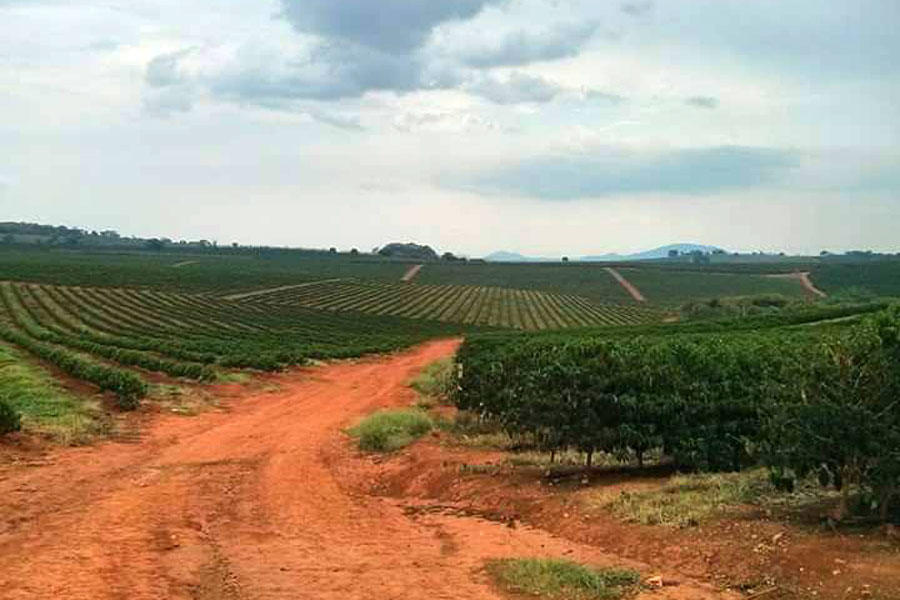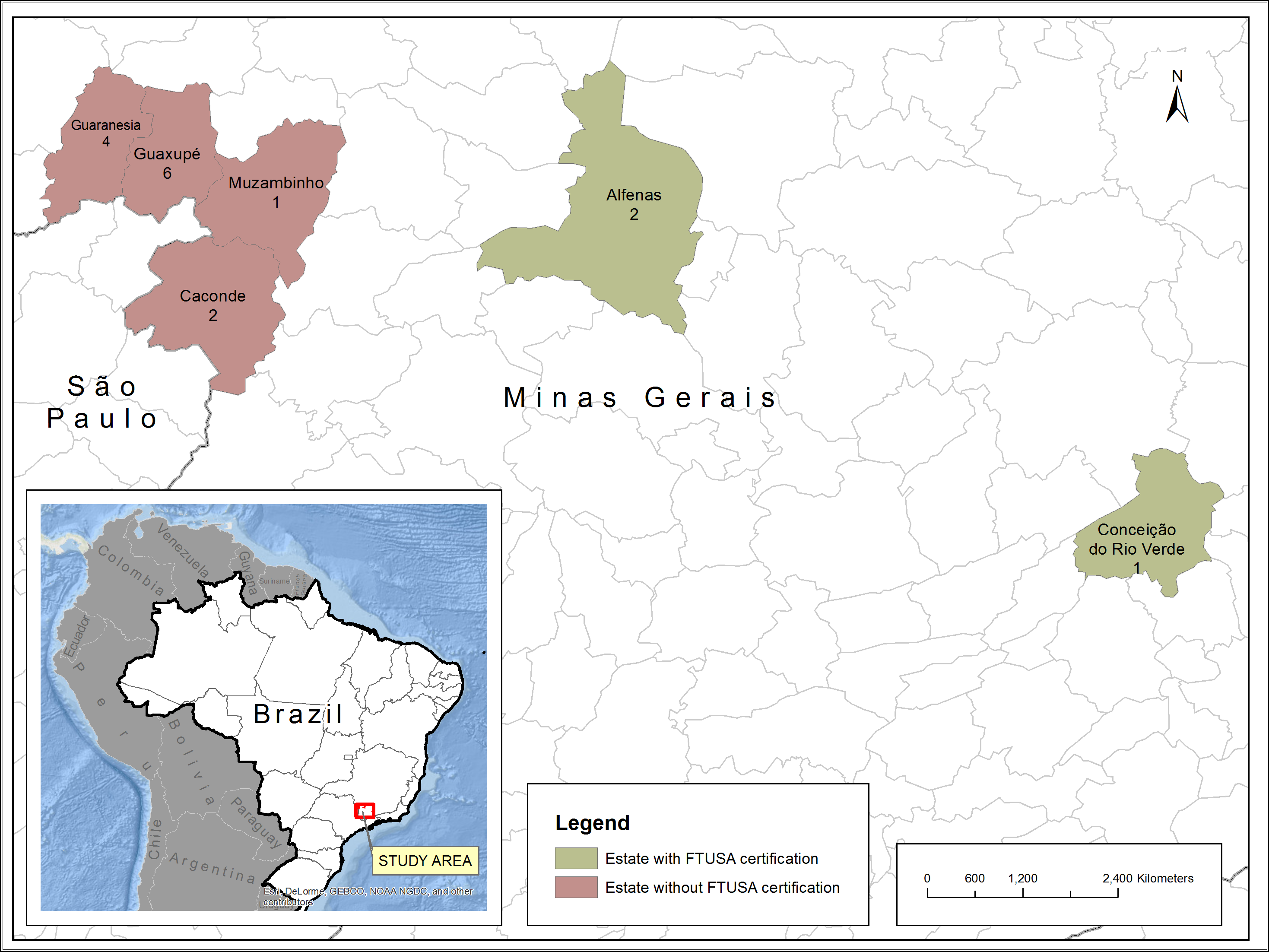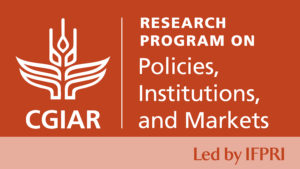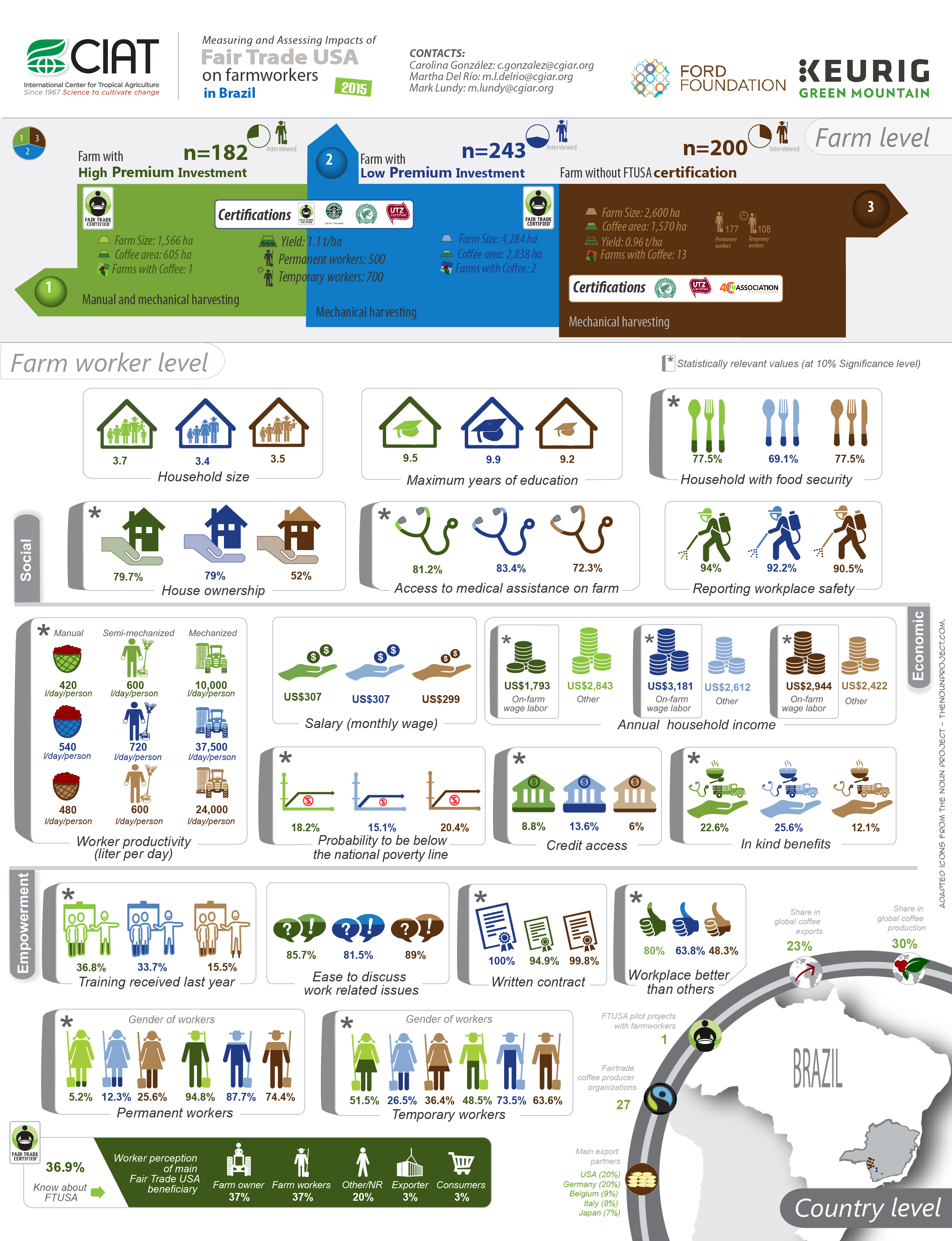Testing Fair Trade for All in Brazil

Fairtrade, FT, is a social movement that aims to connect disadvantaged producers and consumers, promote fairer trading conditions and empower producers to combat poverty, strengthen their position, and take more control over their lives (Fairtrade International). Fairtrade operates through a food certification system, which allows certified producers and in some cases farmworkers to receive a premium for products sold.
By Martha del Rio, Stefania Sellitti, Natalia Gutiérrez
Several products could be FT certified: bananas, cacao, cotton, and so on. CIAT’s work focuses uniquely on the coffee market and on FT coffee certification. The latter was limited to small producers’ organizations up to 2011, when Fairtrade USA parted ways from Fairtrade International and started to certify coffee estates. Indeed, Fair Trade USA developed the Farm Workers (FW) Standard to serve farmworkers that do not own land, but work on larger farms. The objective of the standard is to increase empowerment, including leadership and organization of farmworkers employed on the farm, economic development, and to ensure fair working conditions and environmentally responsible production methods (Fair Trade USA, Farm worker standards, 2013).
According to the coffee pilot report of Fairtrade USA (Fairtrade USA, 2014), fewer than 25% of all the coffee farmers in the world are smallholders who are part of a cooperative organization. An estimated 55% of coffee farmers are independent smallholders and 20% are employed on mid-sized and large farms.
In 2012, approximately 72,450 metric tons of Fairtrade certified coffees were imported into the Fairtrade USA market from 22 different countries. Latin America accounted for 88% or 63,576 metric tons with significant growth in imports from Mexico. In contrast, Brazil decreased its quantity of coffee exports by 53% from 2011 to 2012 (Fairtrade USA, 2012). Around 75% of Fairtrade coffee sold comes from Latin America and the Caribbean (Fairtrade America, 2014).
CIAT’s work
As explained in our previous posts, we are evaluating the impact of a new model of FT coffee certification, known as FT4ALL, in four countries: Nicaragua, Honduras, Peru, and Brazil. However, in this post, we will focus on Brazil, where coffee represents the seventh most exported good and the sector employs 5.8% of the rural labour force.
Our work aims to assess the impact of Fairtrade coffee certification on estate workers’ welfare and empowerment through a comparison of farmworkers from certified estates with farmworkers from non-certified ones.
From October to December 2015, we conducted
surveys among farmworkers on two coffee estates located in the Brazilian department of Minas Gerais
surveys among farmworkers on the certified estate
surveys among farmworkers on the non-certified estate
The Fairtrade certified coffee estate consists of three farms with a total farm area of 6,101 ha, of which 3,443 ha are used for coffee production. The entire coffee cultivation area is certified by Fairtrade USA, C.A.F.E. Practices, Rainforest Alliance, and UTZ. This estate can be classified as a monoculture plantation, on which 500 permanent farmworkers are employed together with a maximum of 700 temporary workers during the peak season. The certified estate sold 77 metric tons of coffee. This level of sales is relatively low for the average of farm production. However, with the certification, the estate had access to new customers.
The non-certified estate consists of 13 farms. On the estate without certification, 1,570 ha are dedicated to the cultivation of coffee, with 440 ha certified by Rainforest Alliance, 554 ha by UTZ, and 1,400 ha by 4C. The non-certified estate has 177 permanent workers and 108 temporary workers.

By Ovidio Rivera.
Through our surveys, we collected the quantitative information necessary to analyze the benefits of certification for the sales with Fairtrade certification. To summarize the situation of non-certified farmworkers compared with that of certified farmworkers, we created an infographic, which is presented below.
Investment of the premium and empowerment
Through the development of a Fairtrade Premium work plan managed by a Fairtrade committee and through the possibility of deciding how to spend the Fairtrade Premium, workers can improve their capacity to make choices and transform these into desired actions and outcomes, reaching a higher level of empowerment.
First, it is essential to guarantee a high degree of involvement of coffee producers in farmworkers’ organizations in order to increase the involvement of coffee producers in farmers’ organizations and to improve their access to markets and bargaining power. Second, the provision of training and capacity-building activities allows farmworkers to improve not only their coffee production but also their marketing and organizational strategies.
In the case of the certified estate in Brazil, farmworkers democratically elected their representatives to the FT committee as follows:



After consulting the farmworkers’ assembly, the FT committee invested the premium in non-formal education projects and health, among others:




Purchase of backpacks for workers
Day(s)
:
Hour(s)
:
Minute(s)
:
Second(s)
This research is supported by


This work is affiliated to


